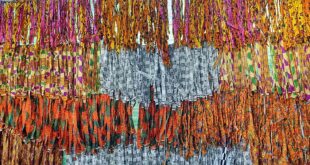From 29-30 November, 55 African and 28 European government representatives came together in Abidjan to adopt a new strategy for Africa. Despite the expectations, the end result was an utter disappointment, writes Barbara Wesel of the German international broadcaster Deutsche Welle, DW.
This huge gathering of leaders in Côte d’Ivoire’s economic hub, Abidjan, was an ambitious event. Soldiers, gala dinners, limousines — no expense was spared to make the participants feel important. And the expectations were high. That was made clear during a preliminary meeting in Brussels.
There were grand statements, above all emphasizing that African leaders wanted to negotiate on an equal footing, to be recognized as economic partners rather than beggars asking for development aid.
Monumental failure
The European leaders talked about a “Marshall Plan for Africa,” an investment initiative to boost jobs and education for the millions of youth who will be born on the continent in the first three decades of this century. They want to avert what they see as a potential future threat: countless young people heading to the rich north in search of opportunity.
But despite all the hope and ambition, the summit was a huge disappointment, a flop. The only concrete decision to come out of Abidjan was the promise to immediately evacuate a few thousand African migrants from hellish conditions in Libya. The pledge was decided by French President Emmanuel Macron, German Chancellor Angela Merkel, and a few African heads of state, during a special meeting on the sidelines of the summit. But it only applies to the people who can be easily reached. The hundreds of thousands trapped in lawless, militia-dominated parts of Libya will have to wait. Because nobody wants to launch a military operation.

Who’s to blame?
After the summit ended, some organizations, as they are prone to do, took aim at the EU, saying the Europeans’ trade policy is to blame for poor development in Africa, driving protectionism in agriculture and the ruthless exploitation of raw materials.
It’s clear that Europe isn’t about to win first prize for selflessness when it comes to its Africa policy. But since when is that a factor in politics? The Europeans protect their own interests, but would at the same time be prepared to commit to a comprehensive program to promote agriculture and education, and take other steps to confront the population explosion. However, these plans will remain on the shelf.
Among those attending the summit were well-meaning and reasonably democratic governments, corrupt exploiters and brutal dictators.
Many passages in the final declaration that referred to “good governance” apparently had to be deleted. It was always going to be unlikely that a gathering of 55 African rulers — who demand a lot from Europe but are often unable to take responsibility for the state of their own countries — would be able to agree.
Africa taking responsibility
The EU, however, will no longer make concrete commitments unless they receive guarantees that corruption and waste, at the very least, will be curbed. Europe is still Africa’s biggest donor and investor, but dreams of a real economic strategy to get the continent on its feet have once again fallen flat. “Good governance” is crucial or at least far better than the current situation in many African countries.
Even the role model state, Côte d’Ivoire, showed its ugly side. The government banned all NGOs, who provide so much aid to Africa, from the summit. The move was undemocratic and foolish, because only together, with the help of civil society, can the enormous problems confronting the continent be overcome. Following the monumental failure that was this big show, Africa hasn’t moved any closer to finding solutions.
© DW
 THE AFRICAN COURIER. Reporting Africa and its Diaspora! The African Courier is an international magazine published in Germany to report on Africa and the Diaspora African experience. The first issue of the bimonthly magazine appeared on the newsstands on 15 February 1998. The African Courier is a communication forum for European-African political, economic and cultural exchanges, and a voice for Africa in Europe.
THE AFRICAN COURIER. Reporting Africa and its Diaspora! The African Courier is an international magazine published in Germany to report on Africa and the Diaspora African experience. The first issue of the bimonthly magazine appeared on the newsstands on 15 February 1998. The African Courier is a communication forum for European-African political, economic and cultural exchanges, and a voice for Africa in Europe.

















